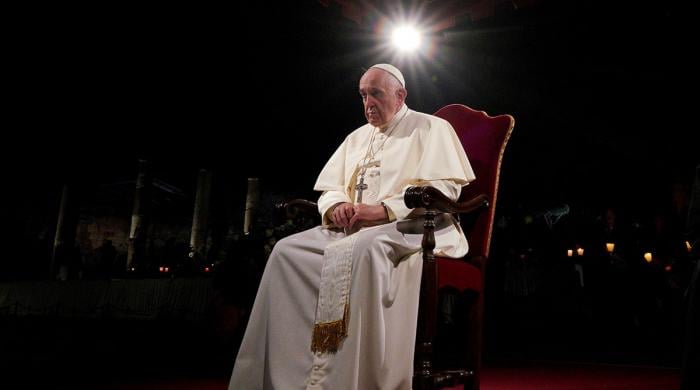Judge dismisses lawsuit over drone strikes
WASHINGTON: A federal judge on Friday dismissed a lawsuit against Obama administration officials for the 2011 drone-strike killings of three US citizens in Yemen.US District Judge Rosemary Collyer...
April 05, 2014
US District Judge Rosemary Collyer said the case raises serious constitutional issues and is not easy to answer, but that "on these facts and under this circuit's precedent," the court will grant the Obama administration's request.
The suit was against then-Defense Secretary Leon Panetta, then-CIA Director David Petraeus and two commanders in the military's Special Operations forces.
Permitting a lawsuit against individual officials "under the circumstances of this case would impermissibly draw the court into 'the heart of executive and military planning and deliberation,'" said Collyer. She said the suit would require the court to examine national security policy and the military chain of command as well as operational combat decisions regarding the designation of targets and how best to counter threats to the United States.
"Defendants must be trusted and expected to act in accordance with the U.S. Constitution when they intentionally target a U.S. citizen abroad at the direction of the president and with the concurrence of Congress," said Collyer. "They cannot be held personally responsible in monetary damages for conducting war." The lawsuit sought unspecified damages.
At oral arguments last July, the judge challenged the Obama administration's position repeatedly, pointedly asking "where was the due process in this case?" for the now-dead U.S. citizens targeted in the drone attacks. When an administration lawyer said there were checks in place, including reviews done by the executive branch, Collyer said "No, no, no, no, no," declaring that "the executive is not an effective check on the executive" when it comes to protecting constitutional rights. But in Friday's ruling, it was clear that the administration's arguments had a strong impact on the judge, who was appointed by President George W. Bush.
The government argued that the issue is best left to Congress and the executive branch, not judges, and that courts have recognized that the defense of the nation should be left to those political branches.
Anwar al-Awlaki's classification as a key leader raises fundamental questions regarding the conduct of armed conflict, Collyer's 41-page opinion stated. The Constitution commits decision-making in this area to the president, as commander in chief, and to Congress, the judge said.
U.S.-born al-Qaeda leader al-Awlaki and Samir Khan, an al-Qaeda propagandist, were killed in a drone strike in September 2011. Al-Awlaki's 16-year-old son, Abdulrahman, was killed the following month.
The lawsuit was filed by Nasser al-Awlaki - Anwar's father and the teen's grandfather - and by Sarah Khan, Samir Khan's mother.











